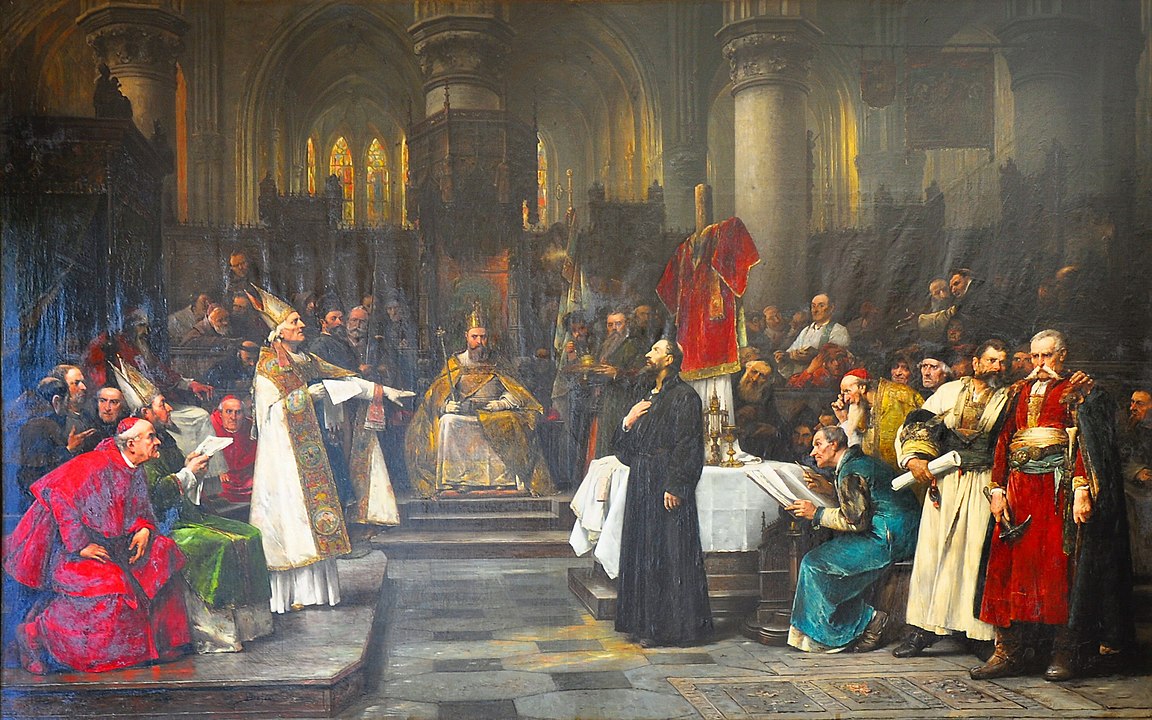Summers in the Czech Republic get underway with a pair of holidays — Saints Cyril and Methodius Day on July 5 and Jan Hus Day on July 6.
Both holidays have religious roots. Saints Cyril and Methodius were two Greek brothers who brought Eastern Orthodox Christianity to Moravia, the eastern half of the Czech Republic, in 863 AD. The region actually already had Roman Catholicism, but the ruler at the time, Prince Rastislav of Great Moravia, wanted to turn to the east for political reasons.
Eventually Roman Catholicism would replace Eastern Orthodoxy as the dominant religion in Bohemia and Moravia, as the western influence was too strong to escape from.
The two brothers invented the Glagolithic alphabet. It was used to write Old Church Slavonic, which became the first written Slavic language. Cyril is often credited with developing the Cyrillic alphabet, still used in Russia and other countries, but that was created later, using some elements of Glagolithic, and simply named in his honor.
Cyril and Methodius are called Apostles to the Slavs because of their influence on language and culture. The brothers, for example, wrote the first Slavic Civil Code, which was used in Great Moravia.
The Czech Republic celebrates them on July 5, which has been their Roman Catholic feast day since 1880. In 1980 Pope John Paul II named them patrons of Europe. The Eastern Orthodox faith remembers them on May 11.
The following day, July 6, commemorates when Catholic priest, reformer and philosopher Jan Hus was burned at the stake as a heretic in 1415 in Konstanz, now part of Germany. After his execution, his ashes were thrown in the Rhine River to prevent them from becoming relics for his followers.
Hus had been excommunicated in 1411 for his calls for reforms in the Catholic Church, such as stopping the practice of selling indulgences. He also urged that preaching should be done in the local language rather than Latin.
His followers became known as Hussites, They became embroiled in the Hussite Wars from 1419 to ’34, which led to a reformed church in Bohemia.
He preached at the Bethlehem Chapel in the center of Prague at what is now Betlémské náměstí and was rector of Charles University. The current chapel preserves a few architectural details of the original building.

In 1990, Pope John Paul II visited Prague and set up a commission to investigate the treatment of Hus. The Hus Commission met in Rome, and after the conference John Paul II stated that he regretted Hus’ death. Hus, though, is not considered a saint in the Roman Catholic tradition.
A memorial to Jan Hus by sculptor Ladislav Šaloun has been in the middle of Old Town Square since 1915, the 500th anniversary of his death. Originally it was supposed to show Hus at the stake, but was modified to instead show him standing defiantly with other figures by his sides.
Hus and the brothers Cyril and Methodius have something in common aside from religious preaching. They both made written linguistic reforms. Hus introduced the use of diacritical marks above letters, especially the háček, into Czech spelling. As with Glagolothic, the system was first used in translations of the Bible.
After the pair of holidays to kick off the summer, there are no more extra days off until Czech Statehood Day on September 28. The new Remembrance Day of the Victims of the Invasion and Subsequent Occupation by Warsaw Pact Troops, on August 21, is not an official day off but just a remembrance day.
At 13 official holidays, the Czech Republic is around average. India and Colombia have 18, while Thailand, Lebanon, and South Korea have 16. The least is in Mexico with seven, followed by the Netherlands, UK, and Hungary with eight days.












 Reading time: 3 minutes
Reading time: 3 minutes 





























